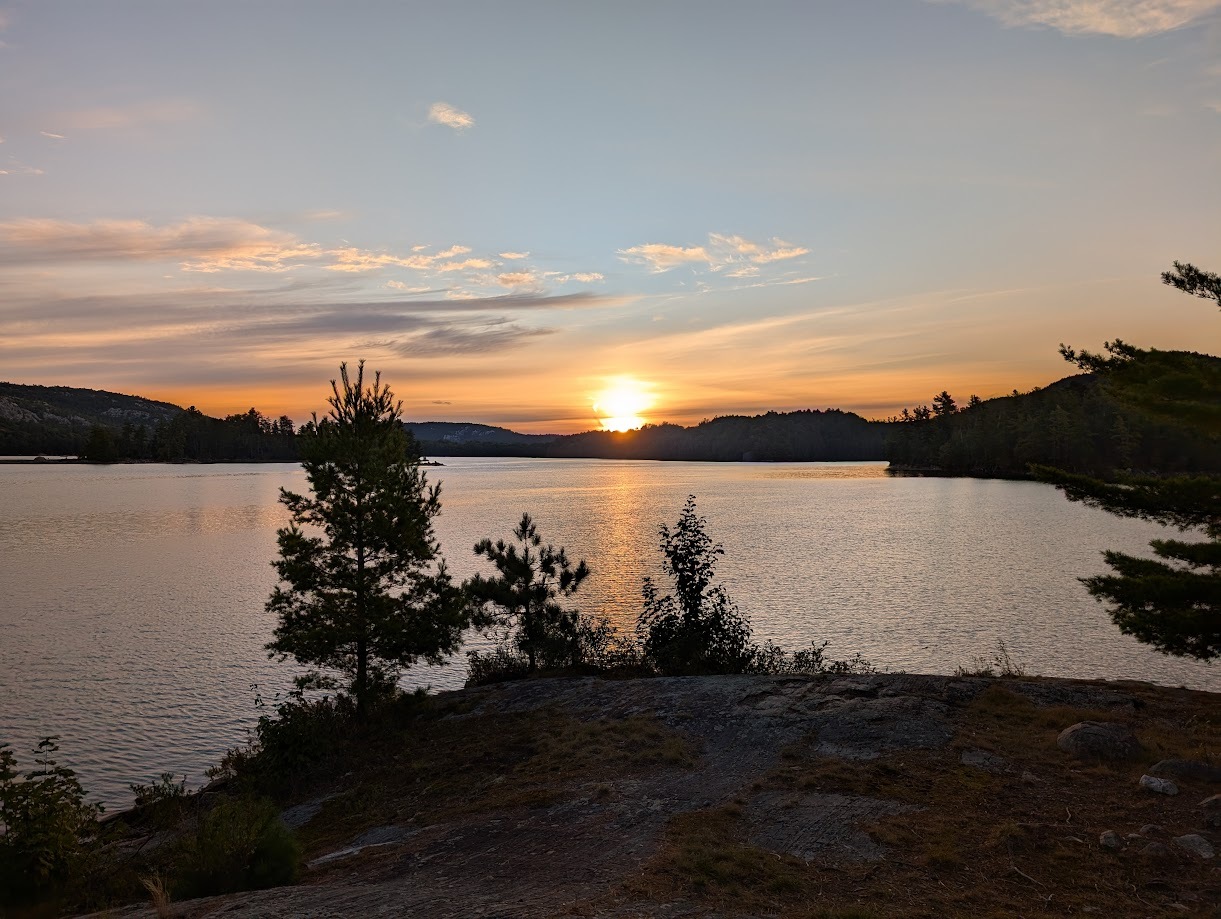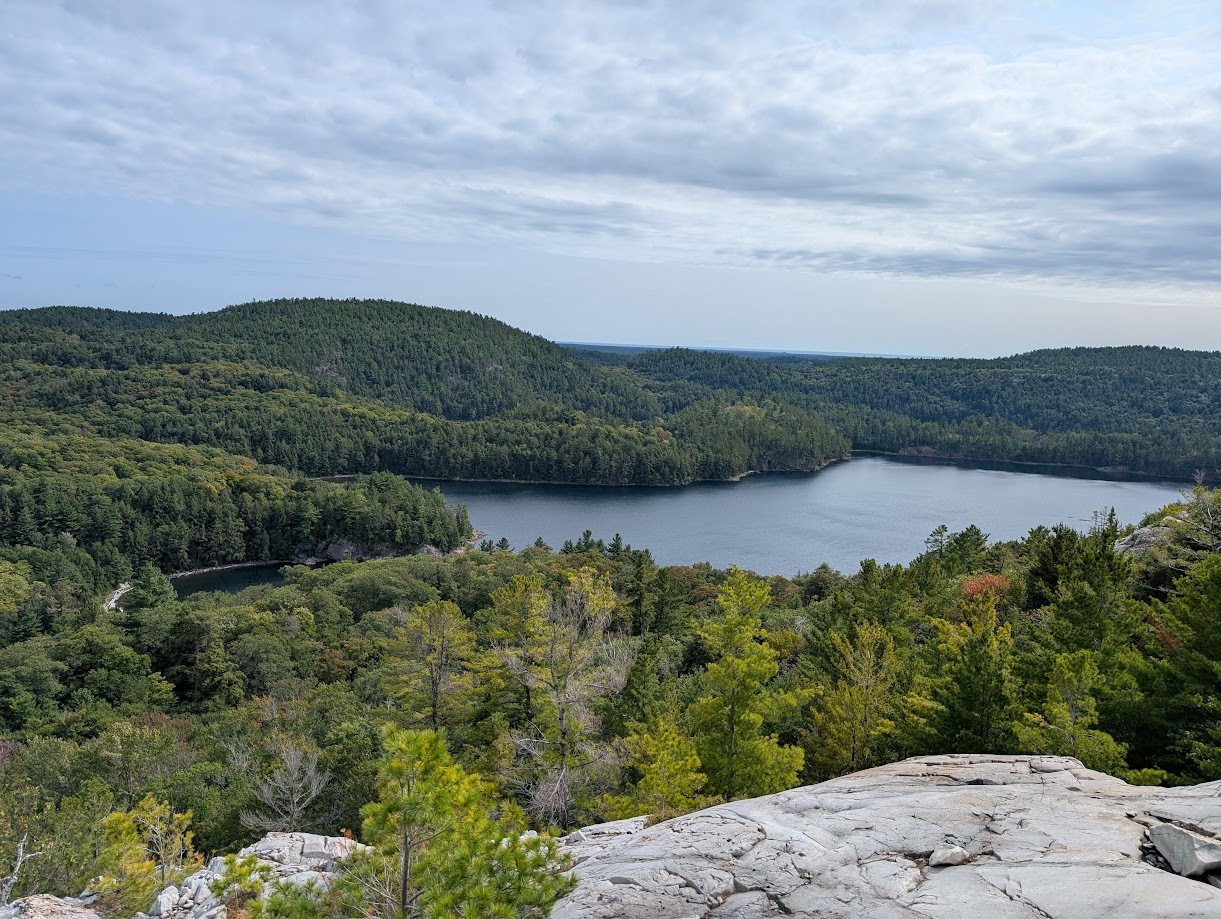Release Date: October 15th, 2025Through the Wilderness
- by Mark Diller Harder
Is the wilderness a place of danger and fear, or a place of safety and wellbeing? Is it a place to flee from and escape, or a place to run to and embrace?
I am someone strangely drawn into the wilderness. I have some regular interior canoe trips each year to places like Killarney, Kiwartha Highlands, Massassauga, Algonquin and the Chiniguchi Waterways. I have even done a few solo overnight kayak trips into the wilderness. I am drawn by the Canadian Shield rock and waters, the powerful quiet, and the sheer beauty. It renews my spirit.

In some ways I feel most at home in that setting. And yet, I am more and more aware of its potential for danger. I have endured violent thunderstorms and lighting, giant scary waves, biting cold, and what I thought was my canoe cracking in half while tripping with my three young children at the time on some Mattawa River rapids. My son has a story last summer of two helicopter rescues on a La Cloche hiking adventure, and a wasp attack this summer had me calling 911 for an Air Orange rescue of a friend in a tough to access section of Killarney. Danger or Safety?
Our summer worship theme at St Jacobs Mennonite was ‘Prone to Wander’, inspired by a wonderful book by Joanna Harader entitled Prone to Wander: A Lenten Journey with Women in the Wilderness (Herald Press, Harrisonburg, Virginia, 2025). No, as un-liturgically aware as Mennonites might be, we did not actually follow Lent in the summer months! We focused on the first half of the book of mostly Old Testament stories of women who found themselves in some ways in the wilderness. Heads up to pastors and worship planners – the book comes with excellent accompanying worship resources, blessing prayers and visuals!
One Sunday we listened to the agonizing story of Hagar. Hagar finds herself in an unbearable situation as a slave mistress to Abram, forced to bear a child in place of the barren and resentful Sarai. Pregnant and being treated harshly, she flees to the wilderness. The very name Hagar means ‘to flee’ or ‘to drag away.’ Joanna Harader writes ‘The wilderness seems like a better option than enslavement. The exposure to the elements, the thirst and potential starvation – it all seems preferable to the treatment she faces as Sarai’s slave…The wilderness, it seems, is not always a place of despair. It can be a place of freedom from the confines and abuses of society. Sometimes we choose the wilderness as a place of respite and refuge.’ (Ibid, p.39)
It is in the wilderness that Hagar encounters God and is told that her child will be named Ishmeal, meaning ‘God will hear.’ Then Hagar does something astonishing. She names God. ‘You are El-Roy, meaning ‘God who sees,’ for ‘have I really seen God and remained alive after seeing him.’ (Genesis 16:13) Hagar returns and gives birth. Many years later, the jealously of Sarai again sends Hagar into the wilderness, this time being banished there.

Amidst the hopelessness of a dying child, God hears the cries and provides water and new hope for the future. This time Hagar stays in the wilderness, and raises Ishmael, who becomes a leader in his own right. ‘Sometimes, when we live in the wilderness long enough, when we face its challenges and welcome its blessings, it transforms from wilderness to home right under our aching feat’ (Ibid, p.51)
There is much in our world right now that feels like wilderness – in church life, in politics, in our environment, in world events. Maybe our personal lives contain feelings of wilderness. There is danger. It is easy to fear. Just maybe the story of Hagar can remind us that there can be hope within the wilderness experiences of our lives. It just may be where we encounter God, a God who sees and hears. Sometimes we may need to choose the wilderness, to help us let go of what has been unhealthy in our lives, and only through the wilderness – safely to arrive at home.
Joanna Harader offers this blessing to end her chapter on Hagar: ‘Please allow me to offer this blessing for your wilderness journey: May your wells be full. May your life be free. May your love be fierce. Amen.’ (Ibid, p.57)
- Mark Diller Harder is on the pastoral team at St Jacobs Mennonite Church.